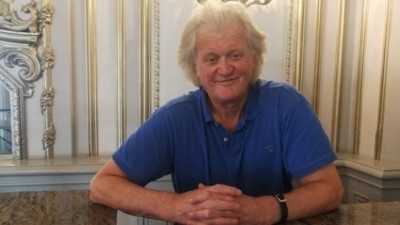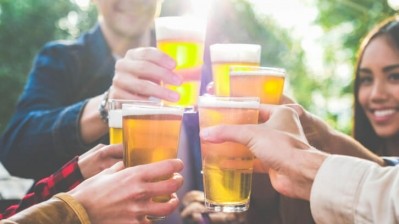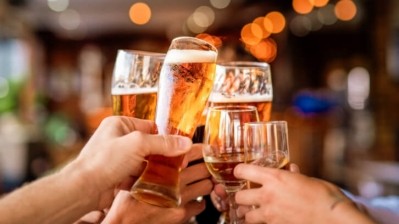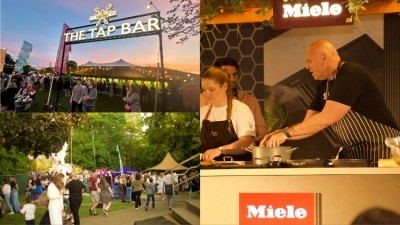LICENSING HUB - LEGAL WITH POPPLESTON ALLEN
A look at licensing changes over 30 years as leading firm celebrates 3 decades

In May 1994, Jeremy Allen and Susanna Poppleston launched specialist licensing company for the hospitality sector – Poppleston Allen.
The firm has grown from having a handful of clients in those early days to now giving specialist licensing, gambling and regulatory advice to hundreds of organisations across a plethora of sectors.
Although Jeremy died in 2011 and Susanna retired a few years later, many of the staff have been at Poppleston Allen for more than 20 years including founding member and current managing partner Lisa Sharkey.
On the anniversary, she said: "It has been an incredible journey and one which I have been lucky enough to have been on since day one. It might sound cliched, but without the commitment of our bright and enthusiastic team and our many incredible clients – both present and past – we simply would not be the force we are today. I am beyond grateful to our clients for entrusting us with their business and letting us share their journey.
“One of my fondest memories was winning The Lawyer’s ‘Law Firm of the Year’ Award and sharing that stage with Jeremy and Susanna celebrating their foresight and bravery in going it alone and setting up Poppleston Allen.
"Next year I will be standing down as managing partner and Graeme Cushion will be taking up the helm. I am excited to see what the future holds under Graeme’s leadership.”
Legislative licensing timeline over the last 30 years:
1994: Poppleston Allen starts
Jeremy Allen and Susanna Poppleston co-founded Poppleston Allen Licensing Solicitors.
1995: Pubs allowed to open all day on Sundays
It was a generation when dads took their sons to the pub for a “swift half” before returning home for Sunday lunch. Now no last orders at 2pm!
2003: Many of the provisions of the 1989 Beer Orders were removed
These had successfully broken the large brewer/retailer monopoly.
2005: The Licensing Act 2003 came into effect.
A massive change. Many worried that whilst the intention of the new act was to help bring a ‘café culture’ to the UK, that this would actually be the start of 24 hour drinking.
The act contained 4 licensing objectives:
– The Prevention of Crime and Disorder
– Public safety
– The prevention of public nuisance
– The protection of children from harm
The Act 2003 fundamentally changed the legal regime governing the sale of alcohol, replacing licensing provisions across 10 different statutes and unifying them in one piece of legislation.
2006: Violent Crime Reduction Act
Drink banning orders and alcohol disorder zones were introduced; the right for the police to issue a Summary Review was introduced, which could result in the closure of licensed premises following a hearing to which the licensee was not even invited; and the offence of ‘three strikes and you’re out’ persistently selling alcohol two children (since reduced to two strikes). Part of the ‘tightening up’ was due to perceptions that the new relaxed regime was causing problems in towns and cities.
2009: The Minor variation procedure was introduced
This allowed licensees the option to make small amendments to their licence, for example minor changes to the layout or to add a non-contentious licensable activity using a simplified and cheaper procedure. Extending alcohol hours is excluded from this procedure.
2010: Home Office takes over licensing
In 2004 alcohol licensing had been transferred to DCMS in a move seen to reflect a more relaxed approach to alcohol sales. Now, in a hardening of government policy responsibility for alcohol licensing was transferred back to the Home Office.
2011: Police Reform and Social Responsibility Act
Licensing authorities and public health bodies were added as consultees to licence applications, a removal of the ‘vicinity test’ allowing anyone anywhere to make representations; a change in language from ‘necessary’ to ‘appropriate’ in an attempt to make it easier for authorities to impose restrictions on licences; the right for licensing authorities to suspend a licence upon failure to pay the annual fee; and introducing the late-night levy to allow local authorities to charge licensed venues for the cost of additional enforcement required to manage the night-time economy, and Early Morning Restriction Orders, to allow local authorities the right to ban the sale of alcohol between the hours of midnight and 6am (not a single local authority has taken up this option). Even more tightening up.
2012: Live Music Act
Deregulated live amplified music for audiences up to 500 between 8am and 11pm.
2014-2015: Some welcome deregulation for the trade
Further deregulation of entertainment, a number of legislative changes saw relaxation for most forms of entertainment for audiences up to 500 between 8am and 11pm. The showing of films, and boxing and wrestling entertainments remain licensable.
2016: Immigration Act
Licence holders without a right to work in the UK see their personal or premises licences lapse automatically.
2020: Covid 19: Reasons to be locked down 1, 2, 3?
A series of acts and statutory instruments were issued by the government in response to the Covid 19 pandemic, often at breakneck speed, which impacted the hospitality sector perhaps more than any other in its history. Over the next two years we experienced national lockdown, restrictions on gatherings, the rule of six, support bubbles, relaxations on outside trading and off-sales, local restrictions, Test and Trace, curfew, a requirement to stop ‘singing on the premises by customers in groups of more than six’, the three-tier system, debates on what constituted a ‘substantial meal’, with sausage rolls, pork pies and ploughman’s lunches all being the subject of intense discussion on radio phone-ins, Christmas confusion and a roadmap out of lockdown, to name but a few.
2020: Business and Planning Act
Relaxed pavement licences and deregulated off sales.
July 2023: Revised late-night levy
To include takeaways.
March 2024: Permanent pavement licence
Initially introduced during the Covid 19 pandemic, in 2022, the Fast Track Pavement Licenses became a permanent fixture, allowing operators much greater freedom to use outside space.
The future
Poppleston Allen predicted pubs will continue to thrive, particularly those at the premium end of the market as many are doing well despite recent economic challenges.
A focus on innovation and attracting younger generations will be key going forward alongside utilising experiential concepts.








